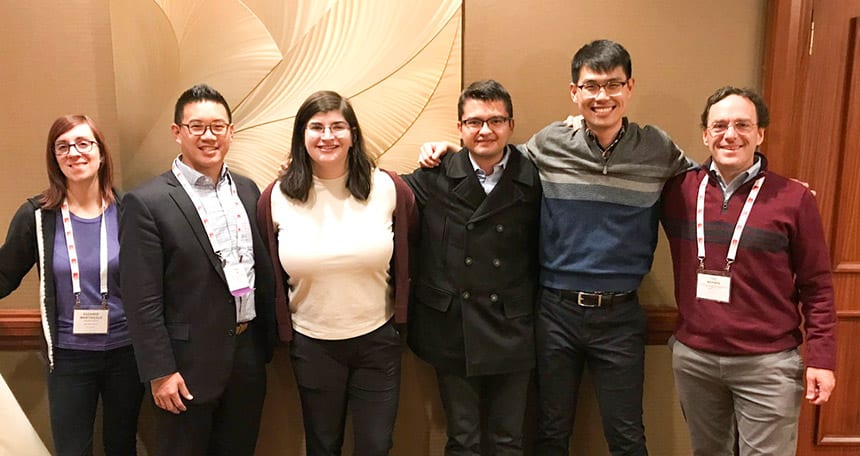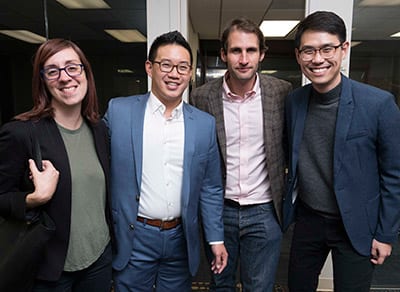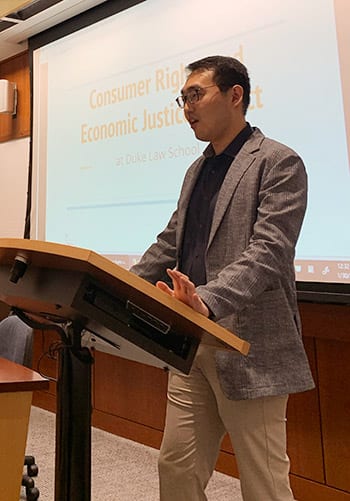
By Gwyneth K. Shaw
Berkeley Law has become a leader in the field of consumer advocacy over the past decade, from the expansion of student-led groups to the Berkeley Center for Consumer Law & Economic Justice, founded two years ago.
Now, the school has joined forces with the National Association of Consumer Advocates to take the model nationwide. Already, the Consumer Law Advocates, Students, and Scholars (CLASS) Network has expanded to four other law schools, with the goal of starting five to 10 more in 2020.
Ted Mermin ‘96, who teaches consumer law and directs the Berkeley Center for Consumer Law & Economic Justice, says the idea for this collaboration bloomed at the end of 2018. Since then, student-run consumer law organizations have launched at the law schools of St. John’s, Duke, West Virginia, and USC.
It’s all part of a broader national emphasis on protecting consumers and preventing economic injustice. Mermin traces much of it to the Great Recession of 2008 and its aftermath.
“There’s a rising awareness of the increase in wealth inequality and the consequences that has for our country and our world,” he says. “We want people to see that consumer justice is economic justice and that ensuring a fair marketplace for all is a way of making this a better society for everyone.”
Setting a foundation
In addition to helping new chapters get started, the partnership is also curating a syllabus repository, so any professor or instructor interested in teaching a consumer law course can take advantage of their colleagues’ expertise.
Students can take classes and then work through their chapters to do hands-on advocacy, says Ted Lee ‘21, co-chair of Berkeley Law’s Consumer Advocacy and Protection Society (CAPS), which just celebrated its 10th anniversary.

“The goal is to let law student advocates take the reins on shaping the future of consumer law. To achieve that, we have to be more than a network of affinity groups—instead, we should actively author public comments to rulemakers, draft amicus briefs for the courts, and conduct research for lawmakers,” Lee says. “It’s time we start broadening the pool of authors to produce more comprehensive work that benefits more people.”
For Lee, finding a place in Berkeley’s consumer law ecosystem has greatly enhanced his law school experience. As a first-generation professional student and a Deferred Action for Childhood Arrival (DACA) recipient, Lee says he felt disadvantaged early on because he didn’t know how to “think like a lawyer.” His work at CAPS, the East Bay Community Law Center’s Consumer Justice Clinic, and the student-led Consumer Rights Workshop changed his perspective.
“If I felt lost because I didn’t know how to make my commitment a reality before I came to law school, now I feel empowered to do that,” Lee says. “And that is all thanks to the consumer law community we have at Berkeley Law. I can truly say that I feel at home when I am with them, and I appreciate them as I do my family.”
That community is constantly growing. Berkeley Law now offers 11 consumer law-oriented courses, convenes regional and statewide meetings to exchange ideas and develop new policy proposals, and hosts national conferences of consumer law scholars, consumer law clinics, and for the first time next year, consumer law students.
Promising early returns
Each project feeds the next, Mermin says. He recently traveled to two of the CLASS Network’s charter members to mark the launch of their student consumer law organizations.
At Duke, Mermin and 40 students celebrated the opening of the school’s Consumer Rights and Economic Justice Project, spearheaded by student D.H. Nam, who calls his internship at EBCLC last summer “transformative.” Students there are already drafting documents and doing research for Legal Aid of North Carolina and the Center for Responsible Lending.

“EBCLC equipped me with the knowledge and tools to help such victims of economic injustice,” Nam says. “When I returned to Duke, I wanted to continue that work through partnerships with local and national consumer organizations. With invaluable help from Ted and the National Association of Consumer Advocates, we also have been involved in amazing legislative advocacy work to promote the interests of consumers in the United States.”
At USC, Mermin found engaged students as well as a fresh crop of volunteer mentors, thanks to a meeting of Los Angeles-area legal service providers and consumer protection agencies organized by his center.
“It energizes practicing attorneys, the chance to teach and to advise the next generation,”
Mermin says. “In most cases, these attorneys had no consumer protection or economic justice training of their own in law school, and they want to make sure that those who come behind them do have those opportunities.”
From Lee’s vantage point, consumer law is important because we’re all consumers, standing up for consumer rights pushes us all forward, and building a stable of consumer-oriented law students will have an impact for generations to come.
“As future leaders, we have what it takes to change the law and our society. But without knowing and seeing for ourselves the shortcomings of today’s system, we can’t bring the much-needed changes,” Lee says. “That’s why I believe it’s important that law students and law schools pay more attention to consumer law issues, and to be more involved in them.”